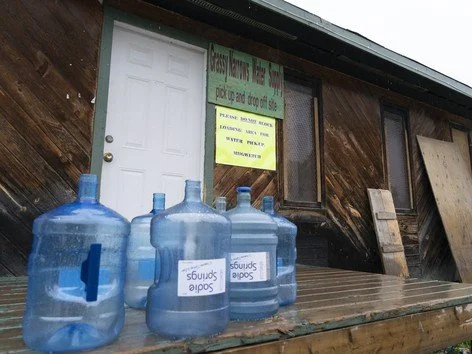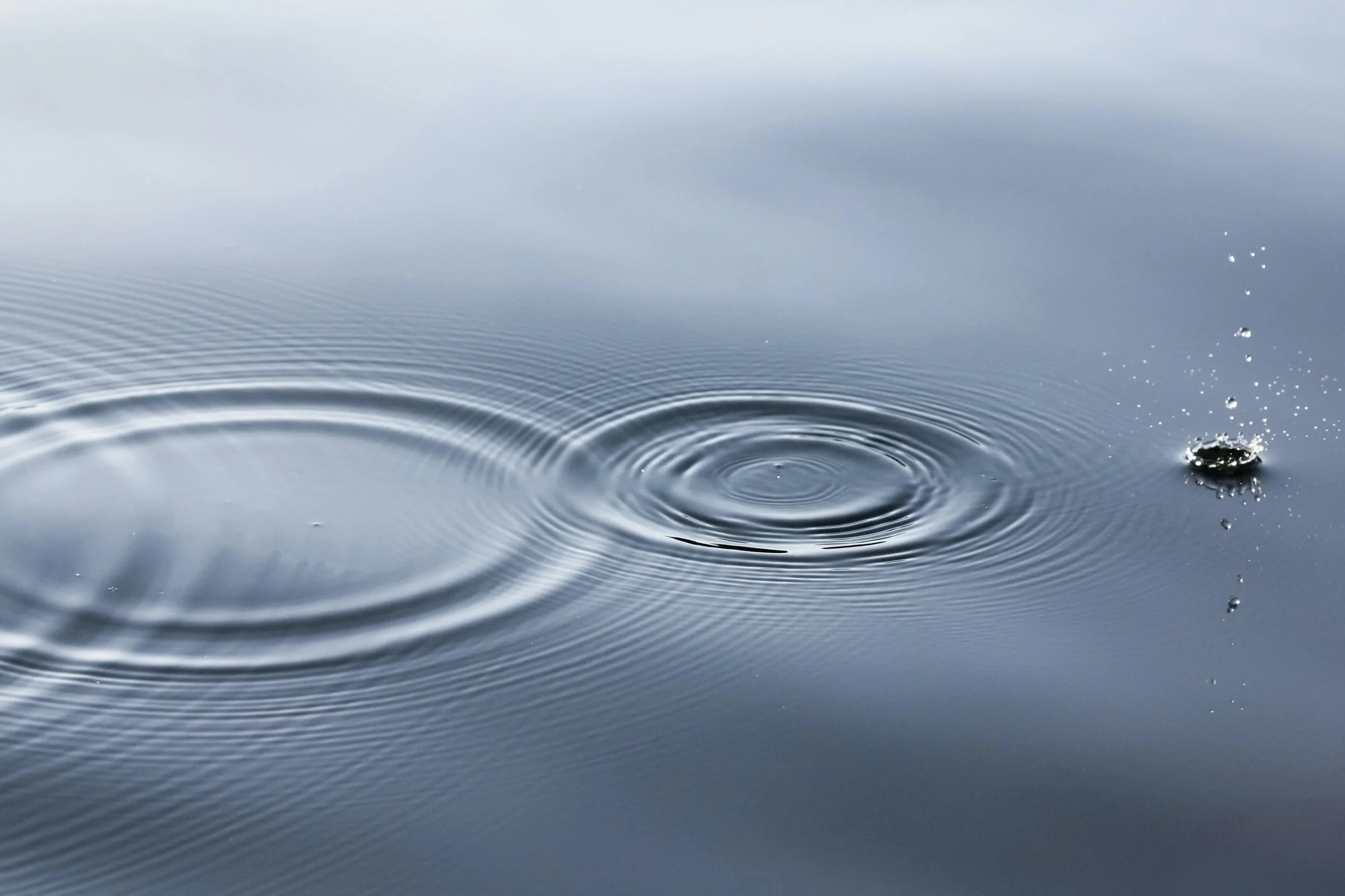The federal government says it's making Canada's largest investment ever in protecting the nation's sources of fresh water — including the Great Lakes. Commitments announced by the government during U.S. President Joe Biden's visit and in the recent budget bring the federal government's total investment to $750 million, said Environment Minister Steven Guilbeault.
Battle stations, everyone
Canada has lifted 137 long-term drinking water advisories on reserves since November 2015. That’s equal to 82 percent of long-term advisories in the last seven years, the government claims. Still, the Liberals fell short of their promise to lift all drinking water advisories by March 2021. There are currently 31 long-term advisories still in place in 27 communities. And a document tabled this week in the House of Commons shows the work doesn’t end once an advisory is lifted. According to the document, tabled in answer to a question from Conservative MP GARY VIDAL, four First Nations have seen long-term drinking water advisories recur on five water systems that previously had advisories lifted.
NDP urges Liberals to tackle soaring prices in the North
New Democrat parliamentarians are urging the federal Liberals to address what they say is corporate greed driving a cost-of-living crisis for northern and Indigenous communities. As record-high prices for food, fuel and heat ripple across the North, Ottawa can lighten the financial load by reforming its Nutrition North subsidy and cutting the GST from home heating, according to northern Manitoba MP Niki Ashton and Nunavut MP Lori Idlout.
Liberals allowing private corporations to make money off Canadians' critical water infrastructure
NDP Infrastructure and Communities Critic Bonita Zarrillo made the following statement: “Last week, Press Progress exposed how the Canada Infrastructure Bank (CIB) plans to privatize water infrastructure across the country. In leaked notes from a CIB board meeting in April 2021, CEO Ehren Cory eagerly proposed letting 'private sector financing' overhaul the provision of water 'assets' – because water has a stable base of 'customers who pay.'
Commons could soon pass legislation to study environmental racism
The House of Commons is close to adopting Canada's first-ever legislation on environmental racism — environmental hazards that disproportionately affect Indigenous, Black and other racialized communities. Bill C-226 comes up for a vote today and is expected eventually to pass through the House of Commons with the support of the Liberals, the NDP and the Green Party. Those parties hope the bill can be fast-tracked through unanimous consent and bypass several procedural hoops. That's not likely without the support of the two other opposition parties.
Liberals pouring funds into the Great Lakes in the 2022 federal budget
Canada is back at the binational table with funding in the 2022 federal budget to protect the Great Lakes fishery. Niagara Centre MP Vance Badawey said it’s the first time in 40 years the federal government has fully funded the binational treaty organization Great Lakes Fishery Commission. “The fishery contributes $8 billion in economic return each year, the fishery is integral to our culture, and a healthy fishery means a healthy environment,” said Badawey in a release following Thursday’s budget announcement.
MP wants water issues under one agency
A Canada water agency could solve clumsy and ad hoc solutions to climate change, invasive species, polluted beaches and recreational waters, increasing nutrient levels, harmful algal blooms and exposure to toxins on the Great Lakes, says Niagara Centre MP Vance Badawey. “This disjointed approach has stymied positive outcomes, delayed meaningful actions, and permitted infrastructure deficits to grow, new invasive species to become established, and water quality to diminish. A divided governance approach has diluted results in ways that threaten the long-term health and sustainability of the multi-billion-dollar resource that is the Great Lakes,” said Badawey in a report to his federal Liberal colleagues.
BC’s Effort to License Water Use Falling Apart, Critics Say
B.C.’s opposition parties want the government to extend — for a second time — an approaching groundwater licensing deadline, warning of a looming crisis for local farms and small businesses. “We are just deeply concerned,” said Shirley Bond, the interim leader of the BC Liberal Party, in an interview. “We want them to extend the deadline, but additionally we want them to do a better job of getting the information out there and finding people who haven’t registered and help.”
Not enough money coming from federal government to maintain Indigenous water treatment systems: PBO report
The Trudeau government has not set aside enough money to maintain and operate water treatments systems in Indigenous communities, according to a new report from the parliamentary budget officer. While the Liberals have more than enough money to build the systems, they are $138 million a year short on providing help to First Nations to maintain them, said Yves Giroux. Canada still has 43 long-term drinking water advisories in 31 Indigenous communities across the country, down considerably from when the Liberals first came to office. But the government admitted last year it would not meet its initial promise to address all of the advisories in the first five years in office.
Federal government needs to up spending to give First Nations clean water, PBO says
The parliamentary budget officer says the federal government would need to increase planned spending to provide clean drinking water in First Nations. Yves Giroux’s report this morning says the government has set aside enough money to build water and wastewater systems over the next five years. Where the government falls short is to help First Nations operate the systems, which Giroux’s office estimates would need $138 million more annually in federal funding.
Singh says there’s no excuse for lack of safe drinking water in First Nations communities
NDP Leader Jagmeet Singh says no excuse is acceptable for the Liberals’ failure to deliver on their 2015 promise to lift all drinking water advisories in First Nations communities. Speaking to reporters in Sioux Lookout, about 230 kilometres northwest of Thunder Bay, Ont., Singh said he is not dismissing that it’s hard to reach rural communities, but Canada’s wealth and technology are sufficient enough to lift all remaining drinking advisories.
Promise tracker: What the parties are pitching on the campaign trail
A running list of specific promises announced by the Liberals, Conservatives, NDP, Greens and People’s party since the official start of the federal election campaign on Aug. 15. Invest $1 billion over 10 years to restore and protect large lakes and river systems. Establish and fully fund a Canada Water Agency. Invest $37.5 million over six years for freshwater research at the International Institute for Sustainable Development’s Experimental Lakes Area. End all drinking water and boil water advisories.
Promise tracker: What the parties are pitching on the campaign trail
Parliamentary committee gives Liberals until March 2022 to come up with drinking water plan
Canada’s Public Accounts committee is recommending that the federal government deliver to it a plan to address clean drinking water on First Nations by March 31, 2022. It’s one of four recommendations the committee issued Thursday in the wake of a scathing report by Auditor General Karen Hogan and her appearance before the committee in April. “Overall, Indigenous Services Canada has not provided the support needed to ensure that First Nations communities have ongoing access to safe drinking water,” said Hogan in her opening address to the committee.
Federal government vows again to end boil water advisories but offers no new target date
Indigenous Services Minister Marc Miller today recommitted the federal government to its goal of lifting all long-term drinking water advisories on First Nations reserves — but didn't offer a timeline for completing the work. With 58 active advisories remaining in 38 communities, the Liberals will miss a self-imposed deadline this month for lifting all long-term advisories. Miller said today that ensuring access to clean tap water for all First Nations communities remains a top government priority.
Sask. adds another long-term water advisory; feds won't set new deadline for lifting them
As a First Nation in Saskatchewan got its second long-term drinking water advisory, Indigenous Services Canada (ISC) said it won’t set a new timeline for lifting them. At a news conference in Ottawa on Wednesday, ISC Minister Marc Miller reaffirmed the government’s commitment to lifting the remaining 58 advisories in 38 communities. Eight remain across six First Nations in Saskatchewan. The oldest has been in place since 2008.
AG says Canada is still failing to provide clean drinking water for all First Nations
While the federal Liberal government vowed in its 2015 election campaign to end water advisories in Indigenous communities by the end of March 2021, a recent report from the auditor general says they haven’t taken action to make this happen. Auditor General Karen Hogan says 100 water advisories have been lifted since the Liberals came to power, but 60 remain across 41 communities.
First Nations workers in Sask. sacrifice wages, vacation to run underfunded water systems
Rebecca Zagozewski is the executive director of the Saskatchewan First Nations Water Association, a non-profit organization that works to build First Nations’ capacity to take care and control of their own water services. She says recruitment and retention of water treatment plant operators is a “real problem” on Saskatchewan First Nations, largely because they often can’t pay operators competitive wages.
First Nations communities pursue clean drinking water through the courts
This time of year, with the temperature plunging below -20 C, a snowmobile and an ice chisel are required tools for anyone in Tataskweyak Cree Nation in need of fresh water. There’s the bottled stuff, trucked into town courtesy of the federal government, but the weekly shipment of 1,500 cases is only sufficient to meet basic consumption needs. For cleaning, cooking and basic hygiene water, many residents need a supplementary source. And rather than use their tainted tap water, they follow a snowmobile trail several kilometres to Assean Lake, pails in hand.
NP View: That many First Nations still don’t have access to potable water is a stain on our national character
It is to our national shame that many First Nations communities still don’t have access to potable water. That we have known about the problem for decades and failed to address it is a stain on our national character — one that Justin Trudeau and his Liberals made a lot of hay about addressing during the 2015 election campaign. “A Canadian government led by me will address this as a top priority because it’s not right in a country like Canada. This has gone on for far too long,” Trudeau said at the time, pledging to end all boil-water advisories on reserves within five years.




















